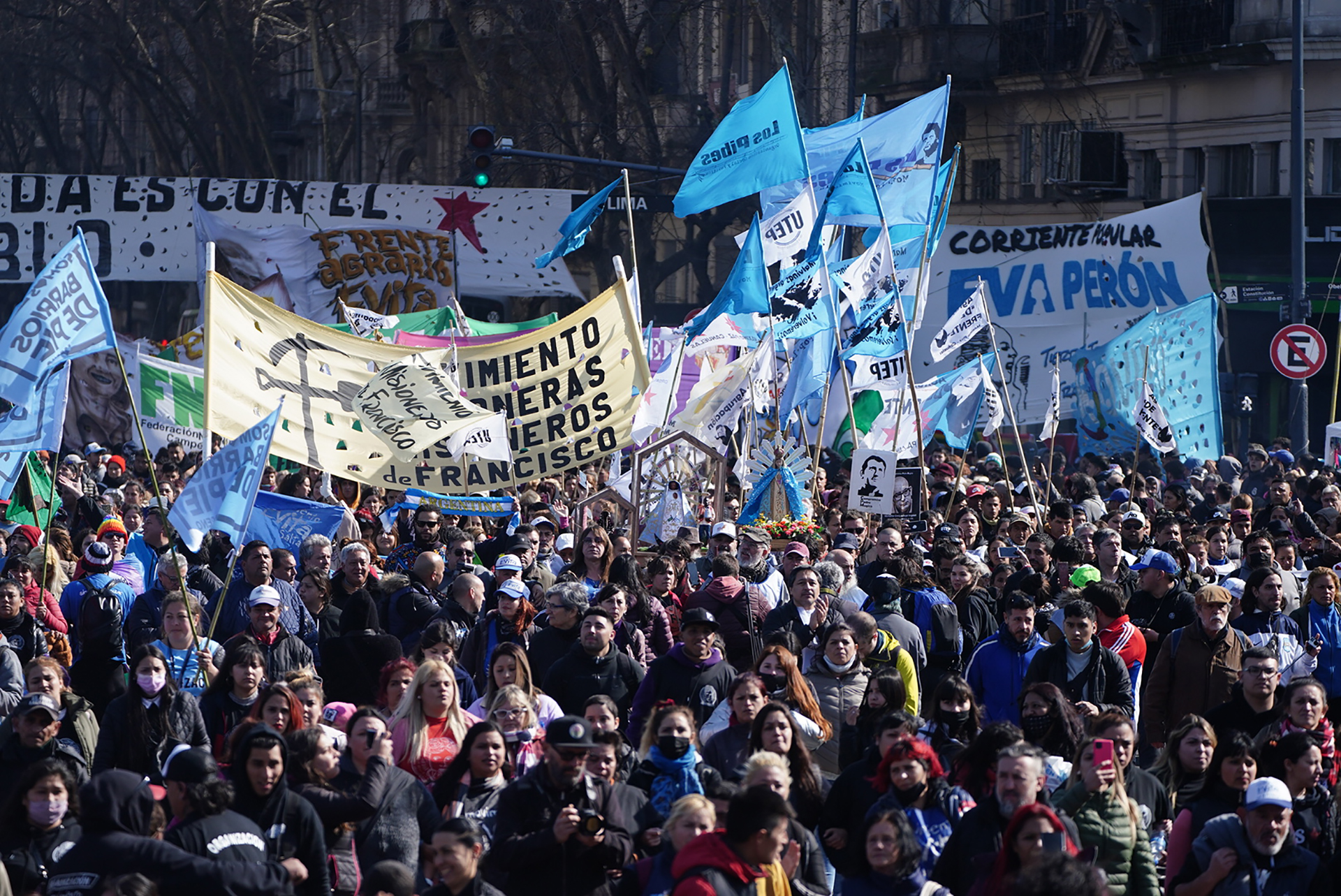
Under the motto “Bread, peace, land, roof and work”, a long column with flags from UTEP, the Clasista and Combative Current (CCC), Somos Barrios de Pie, the Darío Santillán Popular Front, the Evita Movement and the Association of State Workers (ATE), among others, gathered in Cuzco and Rivadavia. At mid-morning they began a mobilization towards downtown Buenos Aires generating significant traffic disturbances.
The central act began after noon in downtown Buenos Aires. Dinah Sanchezthe deputy secretary of UTEP, was one of the leaders who expressed her disagreement with the government’s measures in recent days.
“We only hear measures and responses for the markets, for the oil companies, for those who have been carrying it around for a long time. Today we come to propose something with great firmness and a lot of anger: we will not tolerate that those who sit on top of the food and speculate all the time get answers, and those below do not”he indicated.
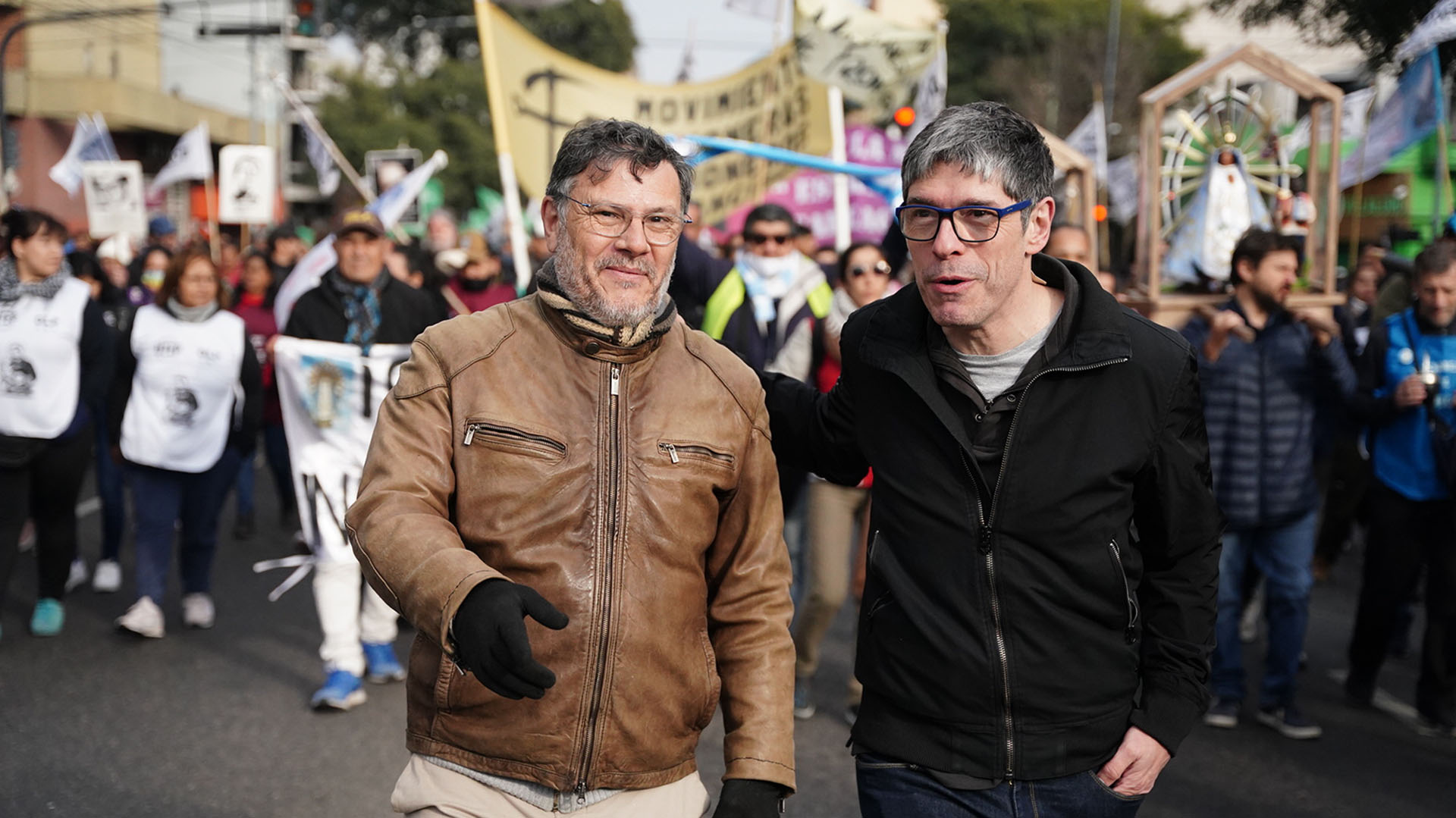
The speech continued along this critical line. Then, Sánchez asked himself: “We have almost 4 million people in Argentina and we have 16 million poor people. In Salta and Chaco children continue to die from malnutrition. Are they seriously not going to have any answer for the popular sectors?
“We are not asking for much, we are asking for policies to strengthen the popular economy and a Universal Basic Salary to end homelessness in Argentina, for those who have nothing. If you don’t like the name, give it another, but don’t turn your back on millions of people who are really having a hard time today. The accounts must close with the people inside”sentenced.
Esteban “Gringo” Castro, the general secretary of UTEP, also issued a critical speech. “On May 1, we announced a demand statement in the General Law of Land, Roof and Work. Some began to get nervous and nervous. From there a permanent level of stigmatization, demarcation, vigilance”he expressed.
“Some are more concerned that we don’t say some of the laws or others. But in the end none comes out. Because there is no political unity, there is no political criteria and that is why neither the productive monotax nor the universal salary comes out “he added.
Among the protesters was the social reference John Grabois, who was critical of the measures of the Ministry of Economy and threatened to leave the government coalition. “We see ourselves in the situation of summoning the whole of the militancy of the Front Patria Grande to rediscuss the membership of our deputies, deputies, legislators and councilors to the ruling bloc “he indicated in a statement.
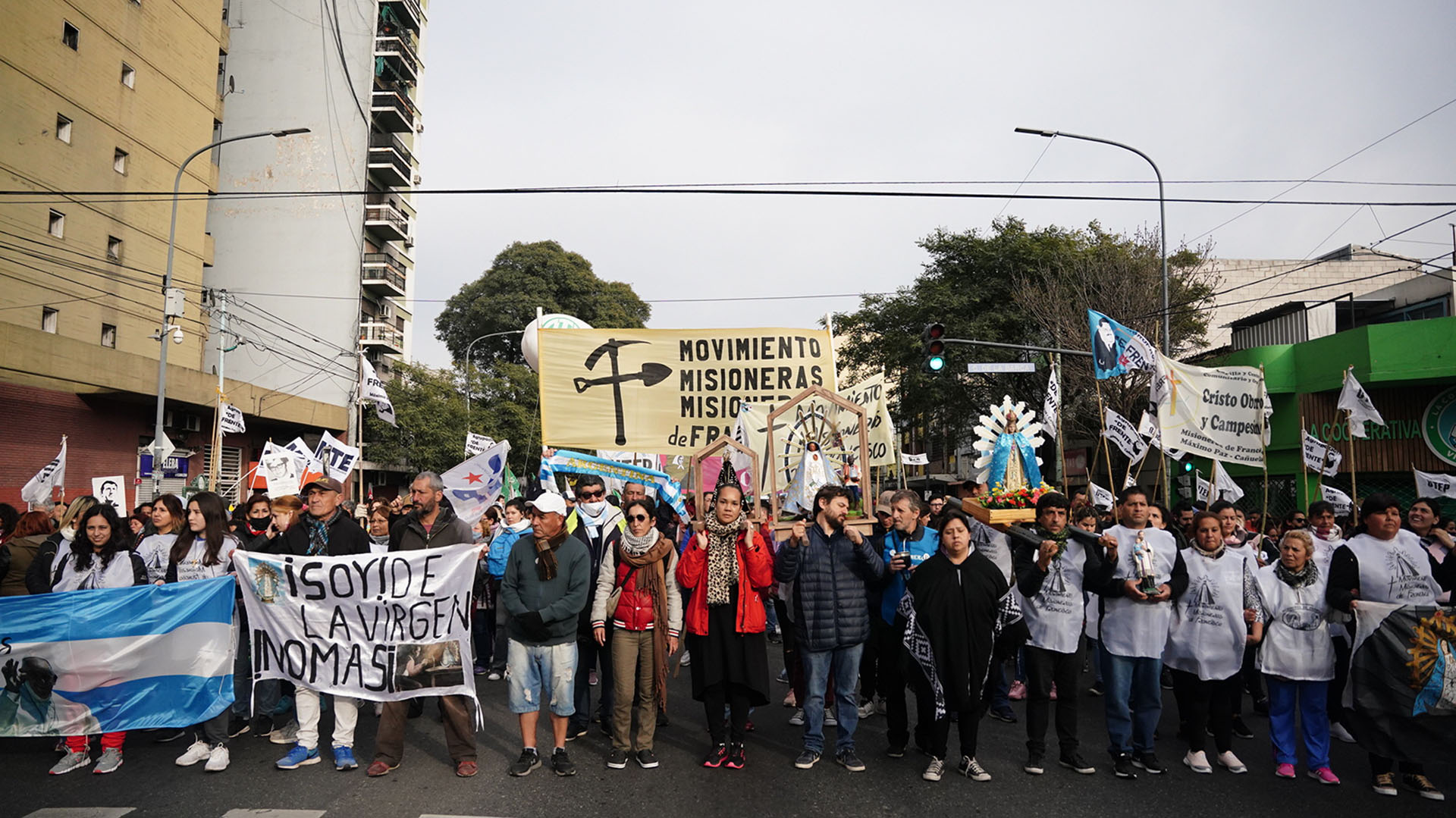
In that same text, he stated that this call originated “Given the general feeling of our force that our government is not defending the popular interests and there is a clear risk that the coalition’s hegemony will shift towards positions that prioritize the interests of corporations”.
The Undersecretary for Integration and Training Policies of the Ministry of Social Development and head of the Movimiento Somos Barrios de Pie, Daniel Menendezalso participated in the march and indicated: “We are once again carrying out the march from San Cayetano to Plaza de Mayo together with the rest of the popular movements that are part of the UTEP, with the aim of continuing to demand land, shelter and work for all the Argentines and Argentines”.
Through a statement, Menéndez specified that “The march represents the search of social movements to be protagonists in the reconstruction of Argentina and thus expand and guarantee rights in all corners of the country.
The San Cayetano march began in 2016 -during the macrista government- and was initially promoted by the Evita Movement, the Clasista and Combative Current (CCC) and the Somos Barrios de Pie Movement, a group of organizations known as “Los Cayetanos”. This year, the mobilization took place again after two years of pandemic, as well as the entry of faithful to the church of San Cayetano.
The various social organizations demanded from the national government improvements and new measures that allow society to reach the most vulnerable sectors.
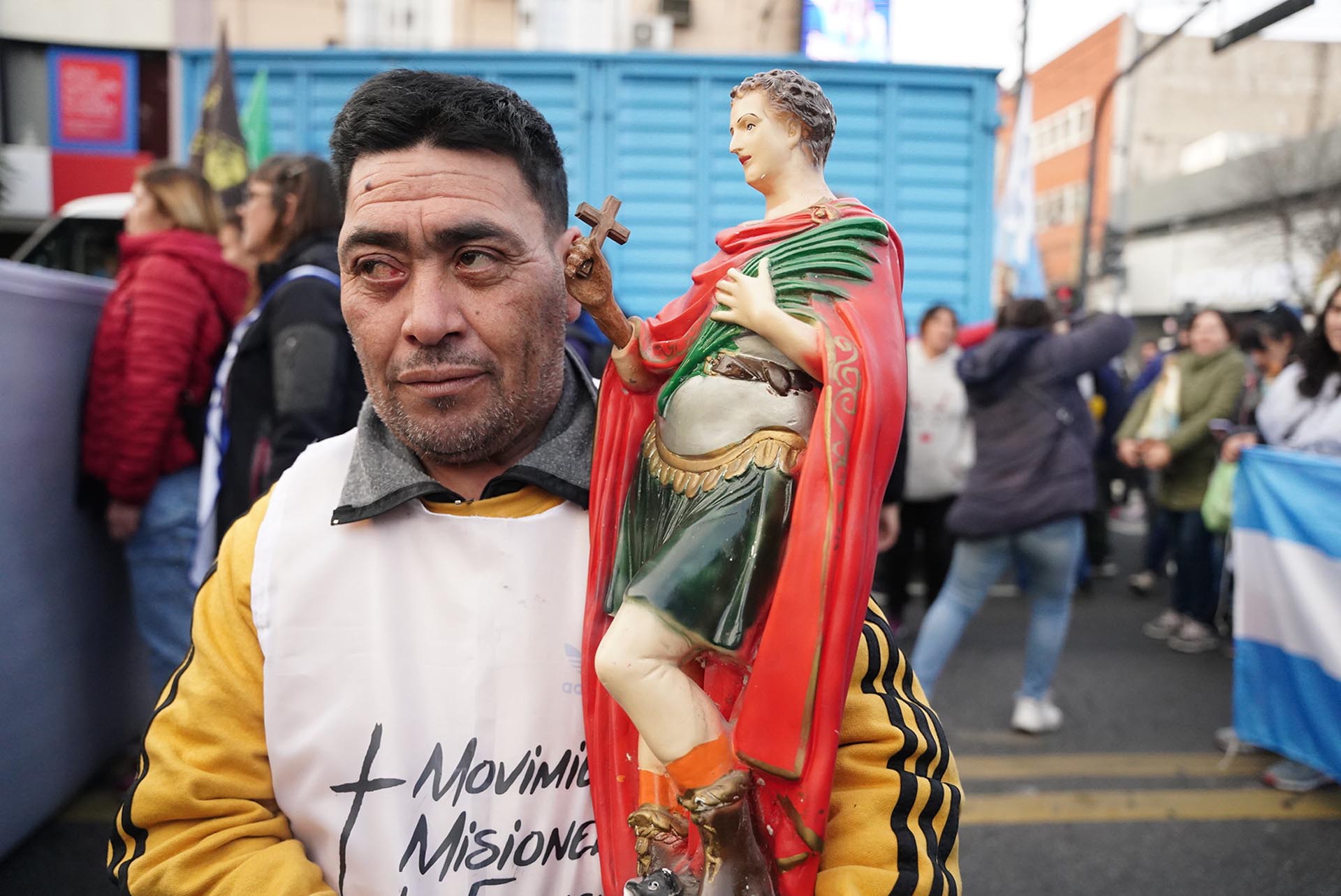
Already at 8 in the morning, long lines began to accumulate at the entrance to the Sanctuary. People came from all corners of the country, including even citizens of neighboring countries. There were from employees who wanted to thank for their current situation to the unemployed who urgently need to find a job to make ends meet.
“Going through the massive queues waiting for the opening of the sanctuary of San Cayetano, and also thinking about the enormous number of brothers who will attend throughout the country in the chapels and parishes of San Cayetano, asking for peace, bread and work, It occurs to me to say in the light of this Gospel that sensitivity to the hunger of our people is what guarantees an education for peace”, affirmed the bishop of San Isidro and president of the Argentine Episcopal Conference (CEA), Monsignor Oscar Vicente Ojea.
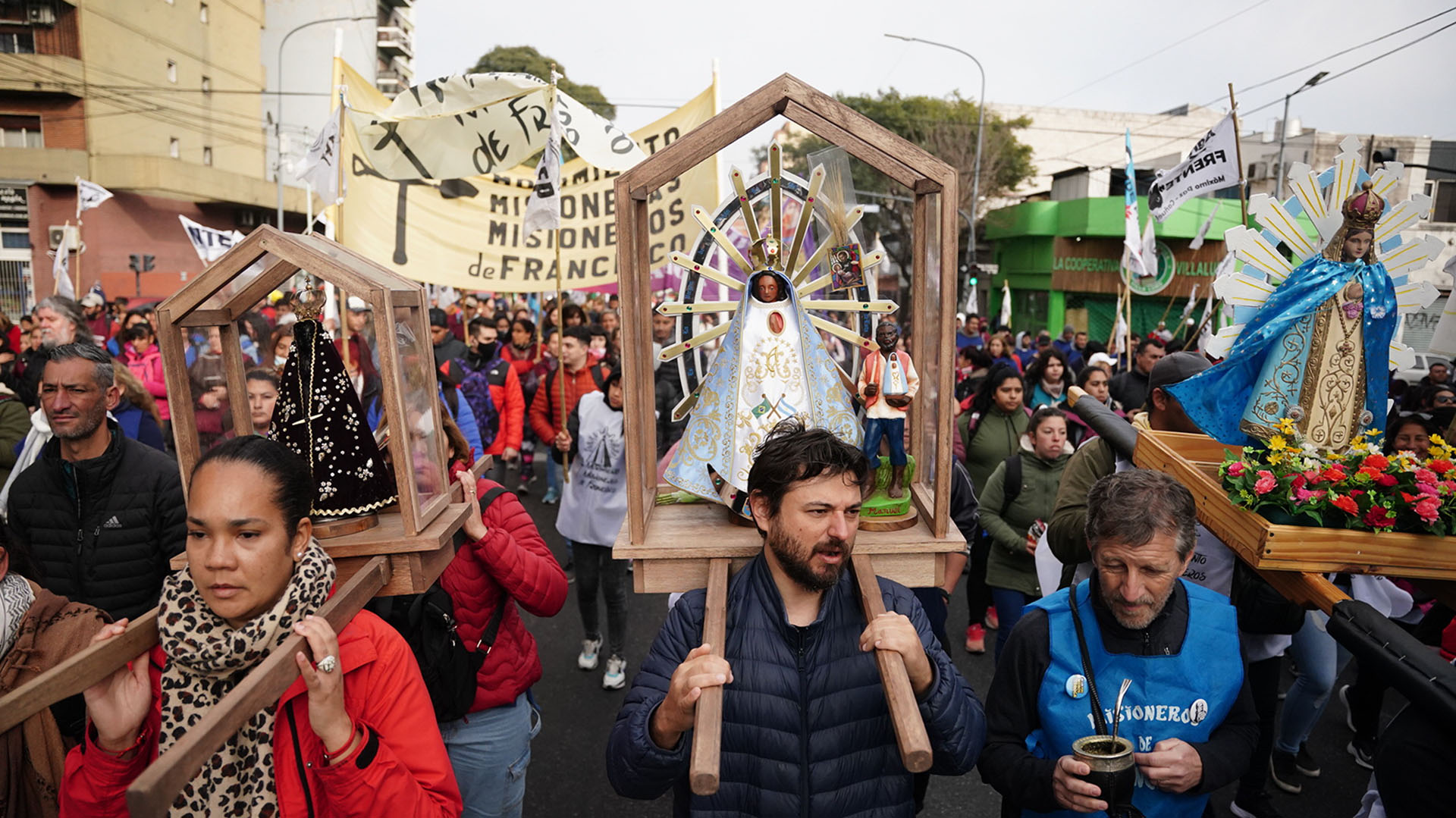
“As the old slogans of the World Day for Peace used to say: ‘if you want peace work for justice, if you want peace defend life’; so this first request to San Cayetano: peace, bread and work”, he added.
The motto of the current edition of the event was “Thank you San Cayetano for joining us, help us take care of ourselves as brothers”.
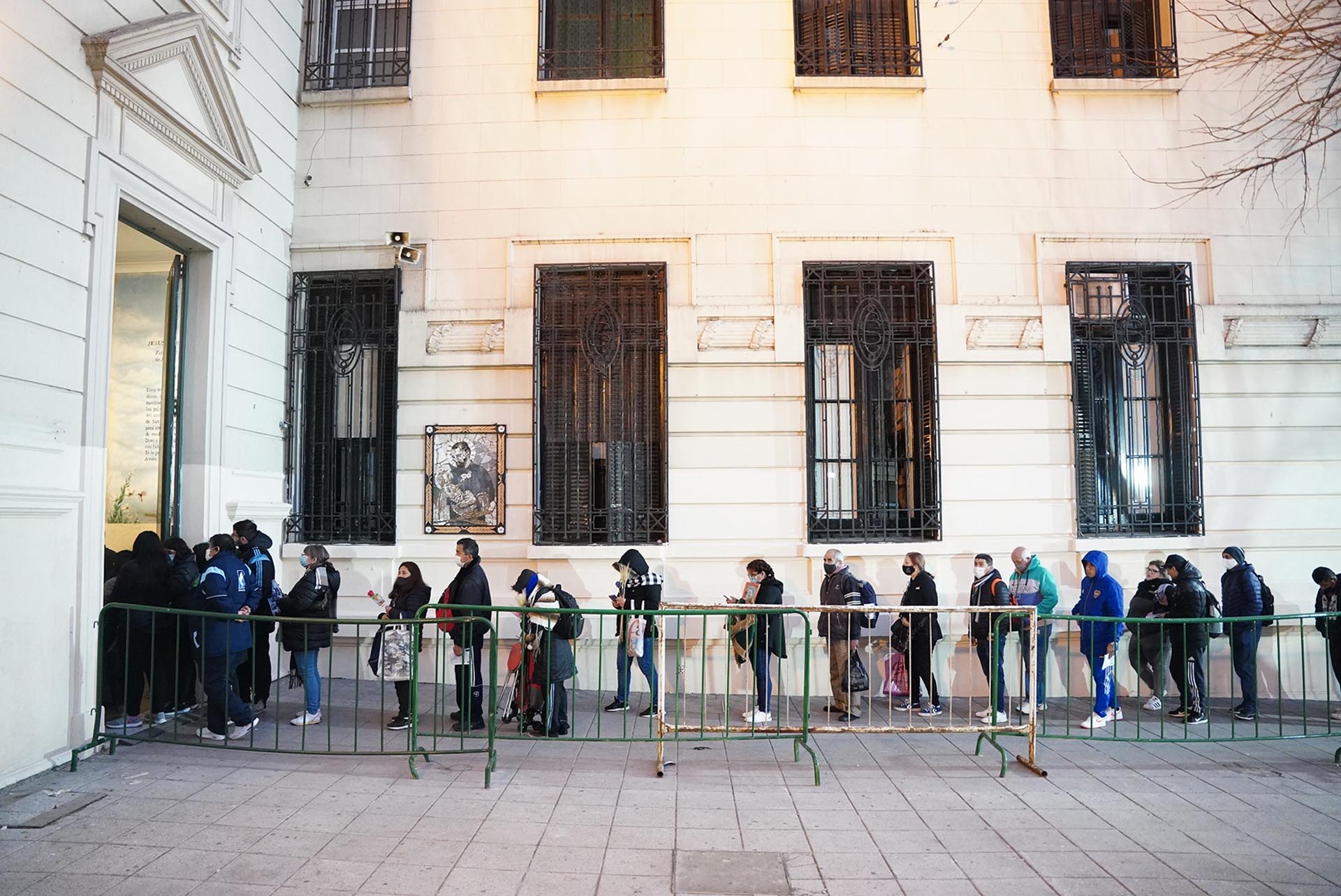
The tens of thousands of participants in the demonstration demanded basic emergencies from the government of Alberto Fernández: “Land, Roof and Work”. To the prayer, this year two “P” were added, peace and bread.
The general law of the “three Ts” presented in Parliament, and which includes the Universal Basic Salary (which the Government advanced but did not promote), is, for social organizations, a need that Pope Francis exposed in the message of the World Meeting of Popular Movements carried out in the context of the Pandemic on October 16, 2021 “so that no human being lacks the minimum essential for the consumption of their basic needs”.
As exclusively reported by this outlet, the march led by Grabois had an outstanding pilgrim who was not present in previous calls: Gustavo Beliz, the now former Secretary of Strategic Affairs.
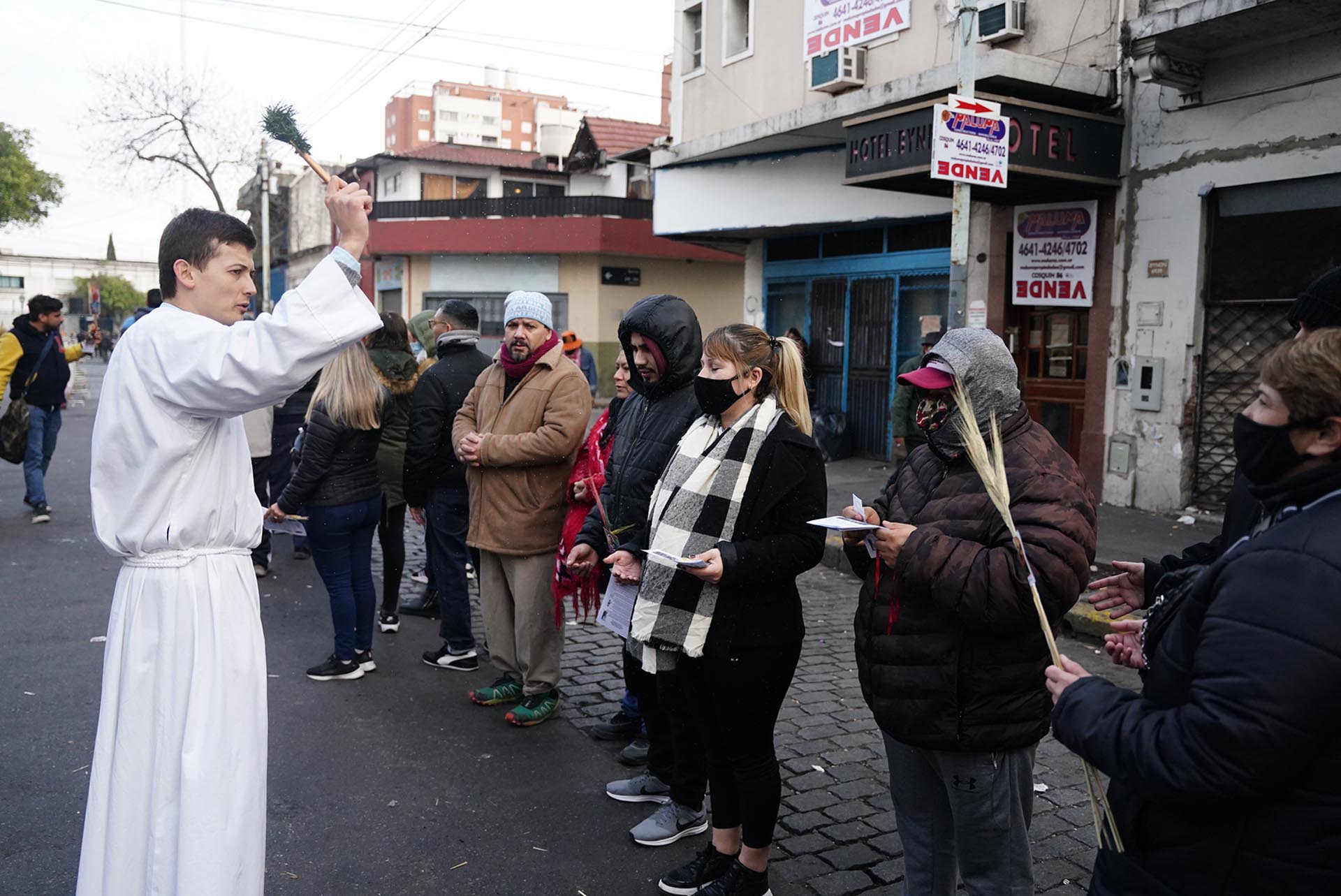
The slow journey, crossed by faith and imperatives, ended at the intersection of Avenida de Mayo and 9 de Julio. This year, unlike the previous five, the closing speeches did not have the Casa Rosada as a backdrop. A political gesture from the organizers to the Executive Branch in the midst of the internal crisis that led to changes in officials and reorganization of the line-up of ministries.
Meanwhile, the Archbishop of Buenos Aires, mario poliremarked today that “the suffocating inflation that is suffered generates misery”, while indicating that “this Argentina hurts us all”.
“The bread that feeds our lives and that daily becomes more unattainable because of the suffocating inflation that we suffer and that generates misery,” Poli specified when leading the central mass in the Church of San Cayetano for the pilgrimage in that sanctuary of the Buenos Aires neighborhood. of Liniers.
The archbishop referred to the story of “the good Samaritan” recounted in the gospel of the day and asked the thousands of faithful who attended the celebration of the patron saint of Bread and Work to leave “questioning through the parable, capable of revealing the solidarity and fraternal attitudes that allow us to rebuild this Argentina that hurts us all”.
PHOTOS: GUSTAVO GAVOTTI AND FRANCO FAFASOLI
KEEP READING:
